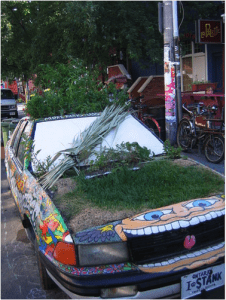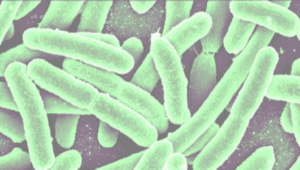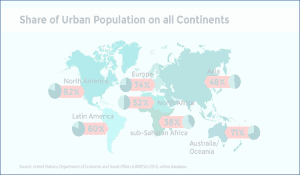Climate change – due to the global warming of the planet – is a reality confirmed by hundreds of scientists. The effects of climate change threaten the daily way of life of millions of people around the world. This great change has been creeping into our lives for decades to the point of settling in a reality that we accept without stopping to think about its consequences. Many times we assume -mistakenly- that it is something that affects others. However, as the name suggests, it is a global change and we also suffer its economic and social consequences in our daily lives. In the documentary Before the Flood (Fisher Stevens, 2016), actor Leonardo DiCaprio travels around the world as a Peace ambassador of the United Nations in search of evidence about this climate change and how it affects us. Using El Bosco’s painting “The Garden of Earthly Delights” as a metaphor for talking about the relationship between man and Earth, he asks whether we are really destined to the total destruction of the planet or if, on the contrary, there is still hope. The documentary closely examines the effects of climate change in different parts of the planet in detail.

The Garden of Earthly Delights
During the film, the impact of the high consumption of fossil fuels on the planet is discussed. Our dependence on fuel for transport and electricity generation makes us explore new forms of production and massively exploit regions of the planet that are key to alleviating the effects of global warming (for example, the Amazon in South America, the Congo Basin in Africa or Sumatra). These regions suffer the indiscriminate logging and the burning of hundreds of hectares in order to create palm tree farmland -whose oil is key in many products of daily use in the first world, such as processed foods, cosmetics and detergents. As a consequence of this activity, not only the emission of large amounts of CO2 is generated, but numerous species (such as orangutans, tigers and Asian elephants) have had their natural habitats threatened, reaching the verge of extinction or, in other cases, having disappeared altogether.
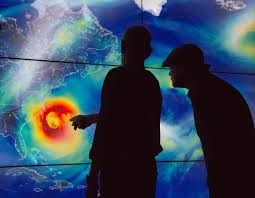
The documentary also notes the role of the oceans – especially the area of the poles – which act as the “air conditioning” that cools the earth’s surface. That way they regulate the temperature of the planet. The increase in CO2 emissions is mainly responsible for the increase in the temperature of the atmosphere as a result of the greenhouse effect, and the increase in temperature is higher at the poles. In these regions of the planet, the rapid and greater increase of the temperature in the atmosphere causes a greater increase of the temperature in the water too. That favours the replacement of old ice (that had never been thawed before) by layers and layers of new ice, which is fragile and thaws very quickly. This accelerated melting of the poles also causes sea level rise in regions such as the Pacific Ocean, where millions of people are currently being displaced from their homes. Other areas affected by this great change are the tropical regions of the Pacific, where the recrudescence of the monsoons is taking place. This fact, for example, , leads to severe problems in rural regions of India, where local farmers watch helplessly the destruction of their entire annual harvest for five hours of torrential rains, losing the possibility of supporting their families. The most dramatic effects of global warming, for now, are focused on the most disadvantaged and impoverished regions of the planet, causing great famines and floods.
Climate change is a fact and it is urgent! But what actions are countries taking to address it? Changes at the individual and national level could improve the prospects for this serious problem that concerns us all. The documentary highlights, for example, the case of Sweden, the first country to commit to investing 100% in renewable energy thanks to the pressure of its population towards its government. In other countries, in this case developing countries like India, their politicians remind the developed countries of the great part of responsibility they have regarding climate change and the irony that they demand actions to alleviate the global change, when they are the main energy consumers. From these developing countries -ironically very affected by climate change when they barely have access to energy sources- they provide us with some figures. The energy consumed per inhabitant in the US is equivalent to that consumed by 1.5 people in France, 2.2 people in the United Kingdom, 10 people in China and 61 people in Nigeria. Another example of the effect of the industrialization of certain countries is China, currently considered the “factory” of the planet. As result, the levels of pollution are very high, affecting the population in their day to day to the point of forcing them to wear masks to breathe properly. However, thanks to the great social pressure that the population, with daily demonstrations demanding solutions and transparency in the data of pollution, China has become one of the first world powers in renewable energy production. Therefore, these changes are possible and all developed and developing countries can carry them out.
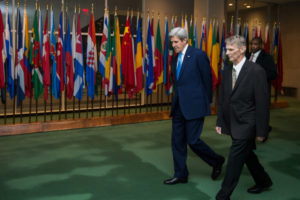
It seems that in some countries there are still many political interests that hold back this type of initiatives. But in turn, in those countries where the level of social awareness is greater, politicians are promoting actions to curb global warming. In this way, we went from being mere impotent spectators to being actors of change. Change habits such as to stop consuming palm oil, to observe carefully where the food and products we consume come from and their composition, to favour the use of renewable energies, reduce the use of plastics, reduce our consumption of beef and, in general, change our diet; these are actions at our fingertips that can have a great impact together with our active demand for action on the part of our governments.
In short, Before the Flood shows us the reality of climate change and makes us aware that it is everyone’s problem, providing us with tools to help solve it.
By Dr Margarita Segovia Roldán (current Vice-Deputy Director of CERU-Yorkshire) and Dr María Huete-Ortega (former Deputy Vice-Director of CERU-Yorkshire)
More information:
To delve into this topic the documentary is associated with the online platform Fight the Flood where there are suggestions and links to platforms to be more active in the change.
Maria Huete-Ortega: Postdoctoral Researcher at the University of Cambridge, Plant Metabolism Group http://data.plantsci.cam.ac.uk/PlantMet/index.php/group-members/dr-maria-huete-ortega /). and former Deputy Director of CERU for the Yorkshire region, (see link)
https://www.europapress.es/ciencia/habitat-y-clima/noticia-efectos-subsestimados-cambio-climatico-mediterraneo-20181029124038.html
https://www.theguardian.com/environment/2018/jan/10/china-on-track-to-lead-in-renewables-as-us-retreats-report-says
http://www.ipcc.ch/report/sr15/
https://www.theccc.org.uk/wp-content/uploads/2016/07/UK-CCRA-2017-Launch-slidepack.pdf
https://www.tiempo.com/ram/455041/las-lluvias-mortiferas-de-la-india-y-el-cambio-climatico-encajan/
https://sruk.org.uk/sruk-climate-change-and-sustainability/
https://www.alternativesjournal.ca/energy-and-resources/sinking-feeling-infographic
This post belongs to the CineScience events of CERU. CineScience is an initiative for scientific dissemination in which film and documentary screenings are made. These that serve as support to debates of different scientific subjects to transmit the knowledge to the general public through the seventh art.

